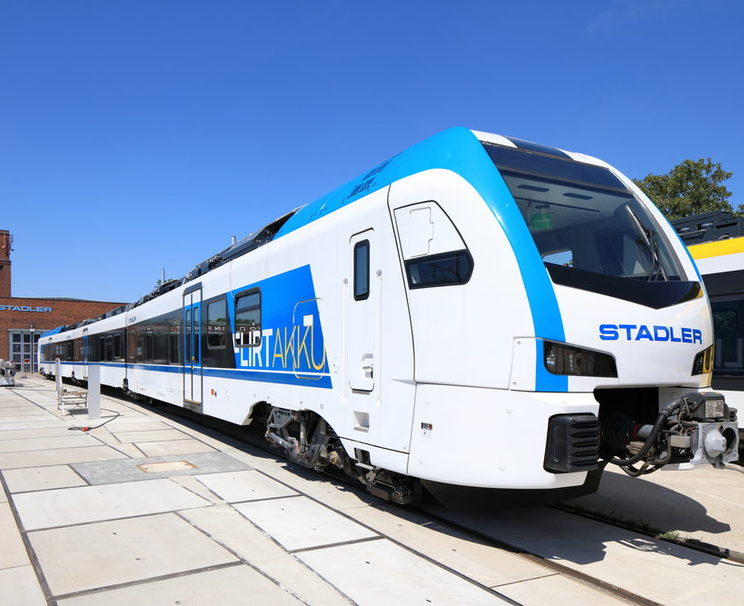Business News Communications News Consumer News Economic News Economy News Electric Vehicle News Environmental News European News Finance News German green Green Energy News International News Light Rail News Manufacturing & Assembly News News Railroad Railroad News Train news transport Transportation Transportation News travel Travel news Zero Emission News
Stadler Sets Guinness Book of Records with FLIRT Akku Battery Only Train Journey
The three unit FLIRT Akku used for the record journey has been developed by Stadler since 2016 as a local CO2 neutral mobility solution for the climate-friendly operation of unelectrified railway routes. The vehicle was…

